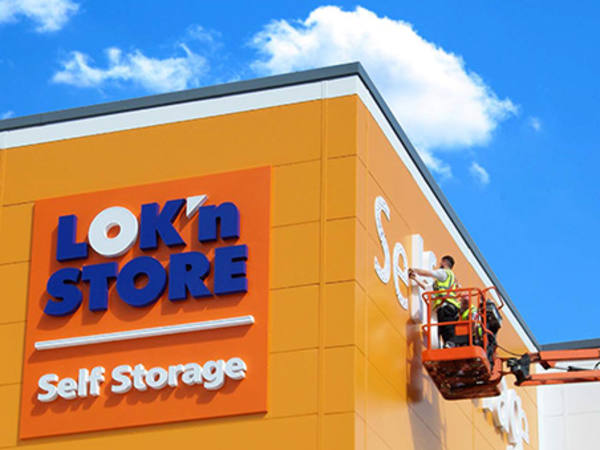- We need treatments as well as vaccines, says biotech boss
- Covid-19 hospital cases have mounted in recent days and weeks
The world still needs Covid-19 treatments even as vaccines are rolled out, a UK biotech company has argued, flagging the potential risks of virus mutations and ineffective jabs as many countries grapple with surging case numbers.
Management at Aim-traded Synairgen stressed the importance of medicines this week as the company, which was spun out of Southampton University, announced the start of late-stage trials for its immunosuppressant drug ‘SNG001’.
“We need treatments as well as vaccines to fight highly pathogenic viruses such as SARS-CoV-2 [Covid-19]”, chief executive Richard Marsden said in a statement on Wednesday.
“It is possible that the virus will mutate to the point where the vaccines are ineffective,” Mr Marsden told Investors’ Chronicle. While vaccine developers could make small adjustments to existing recipes to adapt to new virus variants, they would still need to roll out the updated version. “You’re always going to be chasing the virus”, Mr Marsden said.
Vaccine uptake will also vary around the world, he noted, meaning some people might not be protected and will still need treatment if they are infected. He added that Synairgen’s drug “could be useful every year” for a range of respiratory viruses and it “could be stockpiled for the next outbreak”.
Escalating pressures on the NHS
Mr Marsden’s comments come as Westminster strives to offer a first shot of vaccine to four priority groups in the UK by 15 February, including the elderly and those who are clinically extremely vulnerable.
Encouragingly, more than 2.6m people had already been vaccinated as of 12 January. But the government’s ambitious target is set against an increasingly precarious backdrop, with soaring virus cases and extreme pressure mounting on the NHS as infections translate into hospital admissions.
More than 3.2m people in the UK have now tested positive for the virus. At the last count, 36,000 people were in hospitals with Covid-19 and nearly 3,500 of those patients required ventilation.
Moreover, even if the most at-risk demographics are inoculated as planned, tens of millions of citizens will still have to wait months to reach the front of the vaccine queue.
Urgent review of medicine
Little wonder, perhaps, that authorities on both sides of the Atlantic appear to agree with Mr Marsden – at least for now – that treatment remains vitally important. Synairgen’s drug trial is classified as an ‘Urgent Public Health’ study in the UK and has been granted ‘Fast Track’ status in the US, as both countries strive to quell soaring infection levels while managing complex vaccination programmes hampered by limited supplies.
Greater chance of improvement for hospitalised patients
SNG001 is an inhaled version of the immunosuppressant drug interferon beta, administered via a nebuliser. Interferon beta is a naturally occurring antiviral protein. It “is a bit like the conductor of an orchestra”, Mr Marsden said; “it drives hundreds of processes all designed to counter viruses”. But Covid-19 suppresses the production of interferon beta “as its strategy to evade the immune system”. Delivering SNG001 straight to the lungs is equivalent to “dropping the drug straight into the battleground”, according to Mr Marsden.
Synairgen’s phase three trial will take place across 20 countries, enrolling 610 patients who need supplemental oxygen. Early studies of SNG001 indicated that it lowers patients’ chances of developing severe disease by almost four-fifths. Mid-stage trial data published in the Lancet Respiratory Medicine journal last November suggested that when hospitalised Covid-19 patients received SNG001, they “had greater odds of improvement and recovered more rapidly”.
Rollercoaster shares
Shares in Synairgen soared last July on positive early trial news. But they have since endured a rollercoaster ride, potentially a sign of fluctuating scepticism about the need for treatments as successful jabs emerge.
Indeed, the group’s share price was knocked last autumn when encouraging data emerged about the efficacy of both the Pfizer (US:PFE)/ BioNTech (US:BNTX) vaccine and the shot developed by Moderna (US:MRNA). Its market value started climbing again in early December, taking overall gains since the summer to roughly 380 per cent.
Challenges of scaling up
Market watchers may also question how far Synairgen is able to accelerate manufacturing if SNG001 is approved. The group is still relatively small – valued at roughly £330m on London’s junior market. Scale is required if SNG001 is to make a difference to the outlook for coronavirus treatment.
Conveniently the recipe for making interferon beta “is well understood”, Mr Marsden said, despite being complex. Synairgen has a partnership with a company in Germany and a second manufacturing source in the US “just to cope with the potential demand”.
The group is also working with two companies for fill-finish activities: Catalent Biologics (US:CTLT) and Thermo Fisher (US:TMO). “It’s all about contingency”, Mr Marsden said, noting the group also has two partnerships for aerosol delivery systems.
Financial risk
Clinical trials are expensive; arguably more of a risk for a small company. “A huge amount of investment has gone into getting this programme to where it is,” Mr Marsden said. Synairgen has spent roughly £100m on its coronavirus drug trials so far, he said, helped by fundraisings last year.
In turn, “the strategy is to provide something that is good value for money,” Mr Marsden said, although “until we get data from the phase three trial, we won’t be able to set a price”. He added that US biotech group Gilead’s (US:GILD) antiviral remdesivir drug “has probably set a good precedent for a pricing point”. Gilead announced last June that it would charge $390 per vial.
Diverse treatment landscape
Remdesivir was made available on the NHS last year. And despite debate about its effectiveness in treating coronavirus patients, demand has remained strong during the latest surge of infections; Gilead raised its full-year guidance earlier this month.
But the treatment landscape extends beyond the not-yet approved SNG001 and remdesivir. Last June the UK government greenlighted the relative cheap and accessible steroid dexamethasone as the world’s first treatment proven to reduce the risk of death from Covid-19.
And Westminster said recently that patients admitted to intensive care units with Covid-19 would receive tocilizumab and sarilumab – drugs found to reduce the relative risk of death by nearly a quarter when administered within 24 hours of entering the ICU.
Both drugs were already typically used to treat another illness, rheumatoid arthritis – indicating, perhaps, that further repurposing of medicines may follow, helping to tackle the coronavirus crisis as well as other potential disease outbreaks on the horizon.







